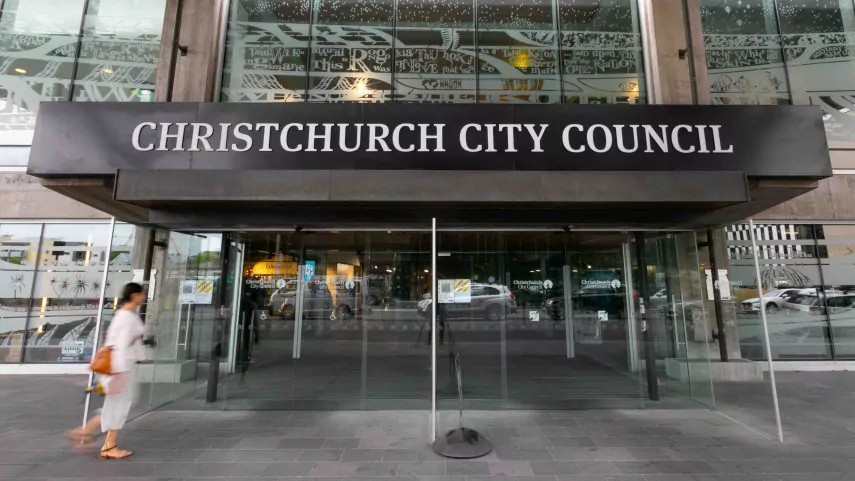Escaped youth tracked by Eagle helicopter, found hiding in New Brighton
The young person who escaped from a youth justice facility in Rolleston has been located...

The New Zealand Media Council has issued a scathing ruling against the New Zealand Herald after the paper published serious factual inaccuracies about a convicted murderer, wrongly describing his victim and the nature of his crime.
The Council upheld the complaint under its principles of Accuracy, Fairness and Balance, and Corrections and said the failings contributed, in part, to the complainant’s return to prison.
The complaint was filed by Graeme Colquhoun, who was named in a July 2024 Herald feature titled “New Zealand’s worst murderers: More details revealed about longest-serving inmates.”
The article inaccurately claimed Colquhoun murdered a female German tourist named Ray Renata in 1999 during an attempted sexual assault. In fact, Renata was a local Northland man and there was no sexual element to the crime.
The article was a follow-up to a May 2024 feature listing 47 men serving life sentences in New Zealand without parole for more than 20 years. Colquhoun was originally mentioned in that piece only by name and sentencing date.
In the July update, the Herald attempted to expand on individuals it previously had little information about but in Colquhoun’s case, it got the basic facts of the crime entirely wrong.
The Council found the article contained “extremely serious errors” and said the Herald’s failure to verify information even with its own past reporting was a fundamental lapse in journalistic standards.
The Council said it was clear Colquhoun had been seriously impacted by the false information. After serving 26 years in prison, he was released on parole in October 2024. He said the article led to repeated confrontations with members of the public who accused him of lying about his past.
“These conversations have been very heated at times and have come seriously close to having me recalled back to prison,” Colquhoun wrote in his complaint. “I had to rely on my parole papers to show people the article was wrong.”
The situation deteriorated further when Colquhoun, under intense pressure and scrutiny, used cannabis — a violation of his parole conditions — and was recalled to prison on November 15, 2024. He told the Council the article’s lasting presence online had made reintegration “unbearable.”
In a handwritten letter from prison dated November 30, he said the story had brought him “unwanted negative attention, resulting in a change in behaviour.” In February 2025, he confirmed to the Council that Corrections staff had looked up the article after he raised concerns, and “the damage had been done.”
The Council sharply criticised the Herald’s handling of the correction process, calling it confusing, poorly executed, and insufficient.
Although the Herald said it corrected the story on October 18, screenshots provided by Colquhoun showed the uncorrected version of the article still appearing on the Herald’s website in both October and November, even weeks after Colquhoun’s recall to prison.
“The evidence suggests the story was not corrected as the New Zealand Herald thinks,” the Council said.
It also found that even after being alerted multiple times, the Herald failed to ensure the inaccurate article was removed from other affiliated websites, including Newstalk ZB, where it remained online into early 2025.
“A good correction policy does not mean removing errors altogether. Mistakes need to be acknowledged and owned, not erased,” the Council said, criticising the Herald for eventually removing Colquhoun’s name from the article entirely, without any note of correction.
The Council added that the Herald’s reasoning for removing Colquhoun because he had been granted parole was inconsistent and made little editorial sense, particularly given that he had in fact been recalled to prison shortly after.
The Council said the Herald relied on uncertain information and appeared to have misunderstood or misreported information it received from police. The paper referenced a Northern Advocate article from 1999 to support its claim, but the actual reporting, including articles from the Herald’s own archives, made it clear Renata was a local man and not a female tourist.
“Despite the seriousness of the article’s subject matter, the Herald did not even check its own reporting from the time,” the Council said. “This sloppy reporting meant they not only got the facts of the murder wrong, but they also accused Mr Colquhoun of being a sex offender.”
It added that even if Colquhoun was a convicted murderer, “he did not deserve the New Zealand Herald making a hard transition even harder through its gross inaccuracies and poor correction process.”
The Media Council unanimously upheld the complaint under Principle 1 (Accuracy, Fairness and Balance) and Principle 12 (Corrections). It concluded that the Herald’s conduct throughout the process — from publishing the error to failing to correct it — had seriously harmed the complainant.
“The New Zealand Herald’s inaccurate reporting and poor correcting are worthy of stern criticism,” the ruling said. “The Council often deals with complaints where sub-standard reporting creates hurt and harm to a person’s life, but seldom where it contributes, in part, to the loss of a person’s liberty.”
The Council called on the Herald to issue an apology to the complainant and review its editorial and correction protocols.


